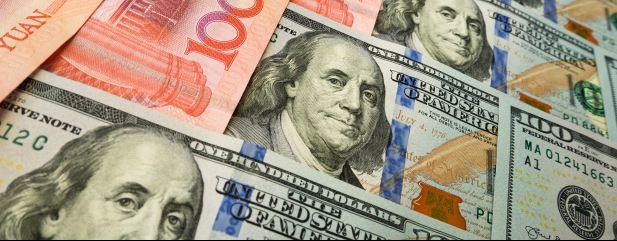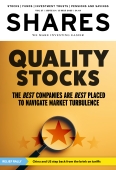Archived article
Please note that tax, investment, pension and ISA rules can change and the information and any views contained in this article may now be inaccurate.
Are we past the peak of uncertainty or is this just the beginning?

Bulls of the US market and technology stocks will be rubbing their hands this week after the S&P 500 and the Nasdaq Composite spiked, taking them further above their early-April levels and putting the Liberation Day sell-off firmly behind them.
The indices may not be back at their all-time highs, but that just makes the bulls even more bullish because to their thinking there are further gains to come.
As Bloomberg’s John Authers put it, the market’s reaction to the US looking for an ‘off-ramp’ from its April tariff declarations is ‘cynicism piled on cynicism; traders believe Trump 2.0 never really meant its own trade rhetoric’.
Does that mean, therefore, we are in the clear and businesses and investors can work on the basis normal service has been resumed?
Judging from the flow of emails into the editorial inbox telling us which AI stocks to buy now and why bitcoin trading over $100,000 isn’t the result of retail speculation but institutions buying on ‘fundamentals’, it’s almost as though the sell-off never happened.
UBS Global Wealth Management’s chief investment officer for global equities, Ulrike Hoffmann-Buchardi, for one, believes it is onwards and upwards from here as ‘peak uncertainty over trade has passed’, according to an interview with Reuters.
That view hinges on the notion it was pressure from the bond market, rather than the equity market, which forced Trump to rethink tariffs, and therefore the bond market will continue to keep the White House in check.
‘While there are likely to be plenty of twists and turns in the weeks and months ahead, recent developments are in line with this hypothesis,’ argues Hoffman-Buchardi.
So, for the time being, the US and China have agreed to reduce tariffs on each others’ goods for a period of 90 days, but there is no saying Trump won’t change his mind if he thinks someone else is winning, because in his zero-sum mindset that would mean he is losing, which is anathema.
More to the point, can a ‘negotiated peace’ – which will still result in higher prices for goods imported into the US – go some way to reassure US households, whose confidence has been rocked, or businesses, whose expansion plans have been frozen?
The answer is, nobody knows, not even the Federal Reserve.
After leaving US interest rates on hold last week, chair Powell admitted the Fed ‘can’t say which way this will shake out’, while the New York Fed president said the economy was experiencing ‘a moment of great uncertainty and change’.
Markets think they know, and are ripping higher, but if the current calm is actually the eye of the storm and there is more volatility (and economic damage) to come this is not the time to be taking big bets.
Important information:
These articles are provided by Shares magazine which is published by AJ Bell Media, a part of AJ Bell. Shares is not written by AJ Bell.
Shares is provided for your general information and use and is not a personal recommendation to invest. It is not intended to be relied upon by you in making or not making any investment decisions. The investments referred to in these articles will not be suitable for all investors. If in doubt please seek appropriate independent financial advice.
Investors acting on the information in these articles do so at their own risk and AJ Bell Media and its staff do not accept liability for losses suffered by investors as a result of their investment decisions.
Issue contents
Education
Exchange-Traded Funds
Feature
Great Ideas
News
- Why shares in sofa seller DFS Furniture are springing back
- Raft of bad news sends Mobico shares 62% lower year-to-date
- UK consumer confidence falls as unemployment begins to rise
- Markets enjoy relief rally as China and US step back from brink of all-out trade war
- Pharma stocks face volatility on US plan to reduce drug prices
 magazine
magazine








